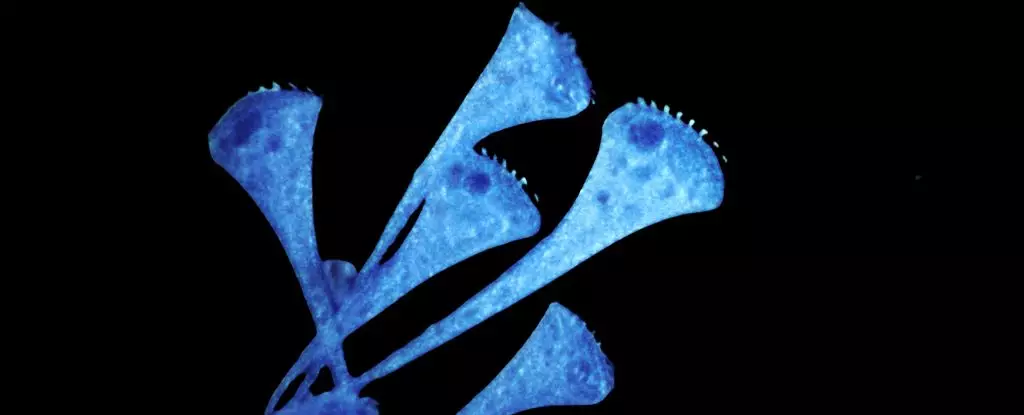Recent findings suggest that even the most simplistic forms of life might possess an astonishing ability: the capacity to learn. This unexpected revelation challenges the long-held belief that learning is strictly a function of complex nervous systems, such as those found in higher animals. Instead, scientists are exploring the notion that individual cells—ranging from simple unicellular organisms to our body’s intricate systems—may exhibit behaviors resembling learning through mechanisms previously thought exclusive to entities with brains.
At the heart of this phenomenon lies a concept known as habituation. This form of learning is characterized by a decrease in response to repeated stimuli that do not result in rewards. For instance, wild animals might become desensitized to human presence over time, or individuals may gradually acclimate to continuous odors. The notion that such a complex behavioral adaptation could take place at a cellular level raises profound questions about how our understanding of learning needs to evolve.
A collaborative study by researchers at the Max Planck Institute, spearheaded by neurobiologist Lina Eckert, employed advanced computer modeling techniques to analyze various molecular networks in both mammalian cells and simple organisms like ciliates. They identified four molecules that exhibited double-response systems, revealing a fascinating capacity for responses to stimuli that vary in intensity and duration. Specifically, the researchers noted that one response dissipates at a slower rate, which could be pivotal in recognizing how cells learn to adapt over time.
This newfound adaptability implies that cells can undergo a form of memory that governs their reactions to stimuli. As biologist Rosa Martinez from the Centre for Genomic Regulation suggests, this cellular ‘memory’ could give rise to a nuanced understanding of immediate responses and inform future reactions. The implication is that these molecular pathways may serve not only as reactive mechanisms but also as a means of learning—a notion previously reserved for more complex organisms.
If the evidence of habituation in cells is corroborated through further experimentation, the potential applications of this knowledge could be groundbreaking, especially in the field of medicine. One area of particular interest is the immune response to cancer cells. Current understanding suggests that immune cells sometimes become ‘habituated’ to the presence of tumors, failing to recognize them as threats. If the identified molecular networks can be proven to function as a form of cellular memory, it might enable a strategic re-engineering of immune cells to overcome this habituation and identify malignancies more effectively.
“The ability to decode how these perceptions are formed in immune cells could offer unprecedented insights,” Gunawardena elaborates. By uncovering the mechanisms behind this cellular learning, we could potentially enhance the efficacy of immune responses against tumors, moving towards novel cancer therapies.
The discovery that cells can learn introduces a new layer to the ongoing debate about the nature of learning itself. It raises philosophical and scientific questions regarding the criteria we use to mark learning as exclusively a feature of sentient beings. Eckert and her team underscore the notion that the discourse surrounding cellular learning has historically been as much about ideological beliefs as it has been about scientific inquiry.
As researchers continue to explore these fundamental principles of cellular behavior, exciting new directions in biological sciences are unfolding. Understanding the implications of cell-based learning could lead to revolutionary advancements in not just treating diseases, but also in comprehending the very essence of life at its most basic levels.
The unraveling mysteries of cellular learning present fertile ground for further exploration. What once seemed an exclusive domain of animals endowed with brains may, in fact, stretch our comprehension of intelligence, memory, and learning to the microscopic scale. As science delves deeper into these cellular mechanisms, we stand at the brink of potentially transformative discoveries that could reshape many aspects of biology and medicine as we know them.

